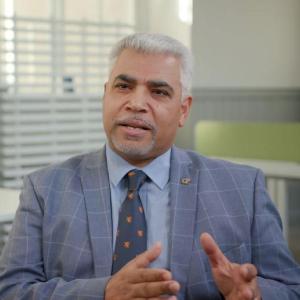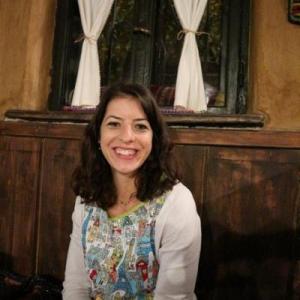Short description:
Michael G Breen is a Lecturer in Public Policy (MECAF) at the University of Melbourne (UOM). He held a McKenzie Postdoctoral Fellowship at the University of Melbourne from 2018-2020, focussing on federalism in Asia, after completing his PhD at Nanyang Technological University, Singapore in 2017. Michael has since published widely on issues related to federalism and multilevel governance, especially as it pertains to ethnic division and conflict, and reforms in Asia, as well as deliberative democracy in Asia. He has also advised on federal reforms in Nepal, Myanmar and Philippines, and consulted for organisations including the United Nations Development Programme. Before academia, Michael was a senior policy-maker and project manager in government departments in South Australia and Victoria, Australia, in particular in the field of Indigenous rights.
Short description:
Lecturer in Politics at University of Liverpool, UK. Specialises in feminist politics, reproductive justice, gender security. Co-chair of Feminist Studies Association of UK and Ireland, co-founder of Reproductive Health Law and Policy Advisory Group. Currently working on abortion and healthcare in Malta and Northern Ireland and reproductive rights of survivors of human trafficking in Uganda and Sierra Leone.
Short description:
Dr Kai Ruggeri is an Assistant Professor in the Department of Health Policy & Management at Columbia University Mailman School of Public Health. He studies fundamental questions of population behavior and decision-making, with a focus on how how integrating behavioral evidence into policies can reduce inequalities and improve population well-being. His recent projects involve behavioral policy studies focusing on large-scale data related to economic choices and related outcomes, which have been covered in media around the world. Collaborating partners include local and national governments, non-profit organizations, industry, and other academic institutions, in New York, various parts of the US, and abroad. Kai joined Columbia from the Department of Psychology at the University of Cambridge, where he directed the Policy Research Group that he founded in 2013.
Short description:
Pratham Hombal is an environmental advocate, focusing on alleviating the effects of urban air pollution. Growing up in California's Central Valley, Pratham witnessed the adverse effects of air and water pollution in his local community. Inspired to make a difference, he started The Ecolibrium Project, a 501(c)(3) nonprofit dedicated to spreading environmental education and promoting stewardship in communities across the United States. Through this, the nonprofit has started 42 chapters in 13 states across the US. The nonprofit regularly holds volunteer and public information events. Pratham is also involved in his local Citizens' Climate Lobby and Sierra Club chapters. His work has been recognized by the Ashoka Foundation, the Yale Center for Race, Indigeneity, & Transnational Migration, and Prudential Financial, and he has been featured on social campaigns by General Motors.
Short description:
Dimitris Skleparis is a Senior Lecturer in the Politics of Security at Newcastle University. His research is at the intersection between critical security studies and migration/refugee studies. He is interested in how migration is governed, perceived, portrayed and experienced amid increasing insecurities. He focuses particularly on the dynamics between security discourse and practice and their human impact. He approaches these issues from an interdisciplinary, and mixed methods standpoint.
Short description:
I am a social anthropologist specializing in economic anthropology, Orientalism studies, criminal anthropology, and the concept of conscious integration. My academic work focuses on how culture, law, and identity intersect in North Africa and the Arab world, especially in relation to heritage preservation.
Short description:
Professor Alaa Garad
Pro Vice-Chancellor, Al Maktoum College of Higher Education, Scotland
Prof. Dr Alaa Garad, FRSA, PhD, is a renowned Quality Management and Organisational Learning expert with over 30 years of experience in consultancy, executive education, and business development. As the creator of the Learning-Driven Organisation Model, he has contributed to five books and authored over 470 articles. Additionally, he is a regular columnist for a leading newspaper. In higher education, Dr. Garad has played pivotal leadership roles at institutions in the Middle East, including UOWD.







